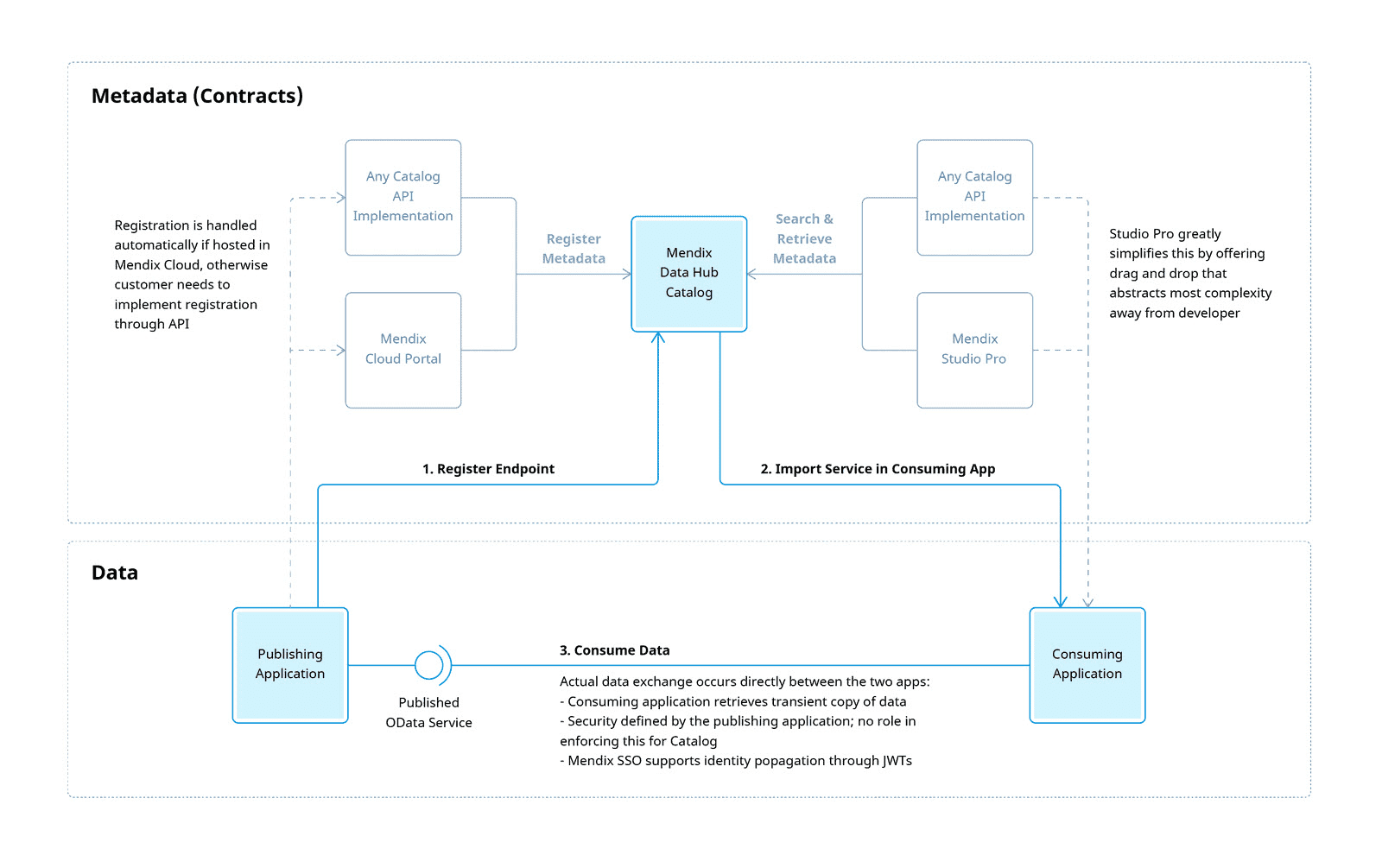Architecture
Table of contents
What is Data Hub?
Mendix Connect includes a set of tools that help you build a landscape of applications. The Catalog, combined with external entities in Studio Pro, consists of modelling tooling that help you define APIs, discover APIs available in your landscape, and use those APIs in your Mendix apps.
- Studio Pro provides you with tools to define services and to use those services in your applications.
- Catalog contains a registration of all the apps, environments, and services that you have running in your landscape, to help you quickly discover the APIs you need in the application you are modeling.
- The Mendix cloud deployment process automatically registers the APIs published and consumed by your applications with the Catalog.
- The Mendix runtime automatically translates your service data needs into the right API calls.
Data vs Metadata

What APIs Are Available in Data Hub?
Data Hub also offers a set of APIs that allow users to programmatically leverage the capabilities of the platform. These APIs are built on open standards with public documentation, which allows for usage from both Mendix apps as well as full-code apps. This in turn enables customers to leverage Data Hub’s functionality in custom ways based on their individual organization (for example, by integrating Data Hub into their CI/CD pipelines).
The following APIs are available:
- Registration API — for registering and updating data sources to the organization’s Mendix Data Hub
- Search API — for searching and retrieving information on registered assets that can be used in your app development
- Transform API — for Mendix users deploying to a non-Mendix environment and generating the request bodies to register data sources published from a Mendix app
For more details, see the Catalog API documentation.
How Is the Catalog Secured?
Security in the Catalog is integrated in the practices that Mendix applies for the whole platform. For an overview on security, see Security.
The Catalog leverages the following capabilities:
- The Catalog is a Mendix app, so it uses the built-in security from the Mendix Runtime
- The Cloud security practices are applied, including encryption, transport layer security, and a secured setup in the Mendix Cloud
- API tokens are issued by the Platform Security layer
How Do I Use Data Hub on Premises or in My Private Cloud?
You can register data sourceswhen not using the Mendix Cloud, but the functionality provided depends on your situation:
- The Catalog is a multi-tenant development tool in the Mendix Cloud. The Catalog stores metadata, i.e., service contracts, application names, deployment environments. You can use the Catalog when deploying your apps on-prem or in a private cloud, but you need to allow meta-data to be stored in the Mendix cloud.
- External Entities are a low-code abstraction on top of OData REST APIs. When deployed, applications will directly communicate with the APIs, regardless of the deployment scenario. No dependency on Mendix cloud exists.
- The Mendix cloud deployment pipeline automatically registers OData Rest APIs provided and used by Mendix apps in the Catalog. If you use your own CI/CD pipelines, you can either use the Catalog APIs to do this registration, manually register your apps and contracts, or skip registration.
For detailed information, see our documentation on Register Data Sources without the Mendix Cloud.